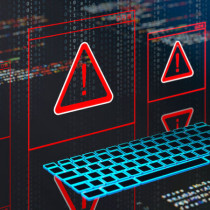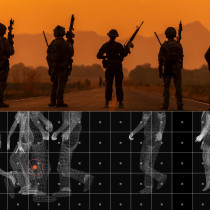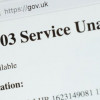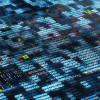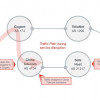Hackers can beat most systems: says Ashurst the convicted Dubai hacker
LEE Alan Ashurst, who was convicted by a court in Dubai for misusing Etisalat equipment, says the prime motive of a hacker is to prove that any network or database can be hacked, thus gaining acceptance of his peers in the hacker sub-culture.
Speaking to Khaleej Times, Lee commented on the legal action taken against him by Etisalat. He said he was not responsible for the service attack experienced by e-mail users in the UAE in June 2000. Lee, unable to leave the country or renew his residence visa as another Etisalat case against him claiming damages is yet to be disposed of, has decided to put his time to good use by taking part in a technical workshop that will be held for 40 computer systems administrators working for banks and companies in the UAE....
Hackers can beat most systems: Ashurst.
By Hani M Bathish
Dubbed E-lert, the IT workshop will be held from September 30 to October 2. Trevor
Punt, Managing Director of Bighat Media and Event Services International, is organising
the workshop.
Mr Punt said the workshop was aimed at showing that most computer systems could be
easily hacked. Lee will be one of the 'hackers' who will attempt to hack into a
'simulated' database at the workshop, to demonstrate to systems administrators how it is
done.
"My fate was sealed before I walked into the court room... You cannot fight a
giant corporation like Etisalat and expect to win," Lee said.
He said his request for permission to visit his sick mother in hospital in the UK was
denied. He had to borrow Dh10,000 from friends to pay a fine imposed by the court.
He said he was not a malicious hacker or 'cracker' and his intention was never to cause
harm. He felt he was being made a scapegoat, blamed for problems Etisalat had with its
system.
Asked about the computer programs found on his confiscated laptop, Lee said: "The
programmes found on my computer are standard systems administration auditing programmes.
These tools come with a standard distribution of Linux, you can't use them to enter
systems, as they are not hacking tools."
He said entering into a database was not a proof that a hacker had malicious intent.
Mr Punt said: "I have sat at meetings with banks and big corporations and when you
talk to these people you sense there is a sneaking admiration for hackers. They see the
hacker as the small guy pitting himself against the big corporation.
"What's happening is that people who are being beaten by these hackers, the
systems administrators, are going round and saying this is malicious, that this is a
terrible thing to do.
"This way everybody who is computer savvy and can enter into a computer system is
labelled a malicious hacker."
Lee said most systems could be penetrated with ease. The blame, he said, should not lie
with hackers but with systems administrators.
"I think focus should be shifted away from hackers and turned on the
administrators who do not clear their systems, who don't install firewalls and who
mis-configure firewalls, they should be crucified. Many a time getting into a system isn't
hard."
Mr Punt said 67 per cent of companies in the Middle East and 87 per cent of banks did
not have secure systems, despite claims by these companies that their systems could not be
hacked.
He said if banks were going to go for online banking and wanted to be in the forefront
of technology, they should take the security issue seriously.
"E-lert is a closed workshop of course, we don't want to have everyone there to
show them how to hack, what we want to do is to show how easy it is to get into people's
systems.
"We are not going to crack or hack anybody's 'real' system, we will set up a
network inside the workshop room, we will have the attackers (hackers) pitted against the
defenders (systems administrators)."
Lee's first computer was a Commodore 64. He was nine years old when he first put his
fingers on a keyboard.
While other kids played with the more sophisticated 386 and 486 computers of the time,
Lee could only have a Commodore 64 as his family was of modest economic means and could
not afford more sophisticated equipment.
"This probably made me prefer keying in command lines as opposed to pointing and
clicking with a mouse; of course I progressed from that to the Unix system, but it helped
that I was still typing stuff rather than having a nice interface... I get a thrill
knowing things.
"It gives me a buzz when people who are 10 or 20 years older than me come to me
for help," Lee said.
Mr Punt said: "It's knowledge pure and simple, it's simply knowing how to use a
piece of equipment effectively."
Etisalat has filed a case with the civil court and has asked for Dh2.835 million in
compensation for what it claims is the damage caused to its Internet service by Lee. Lee
said jokingly that none of his friends had Dh2.835 million to lend him should he lose the
civil case.
SNP.




